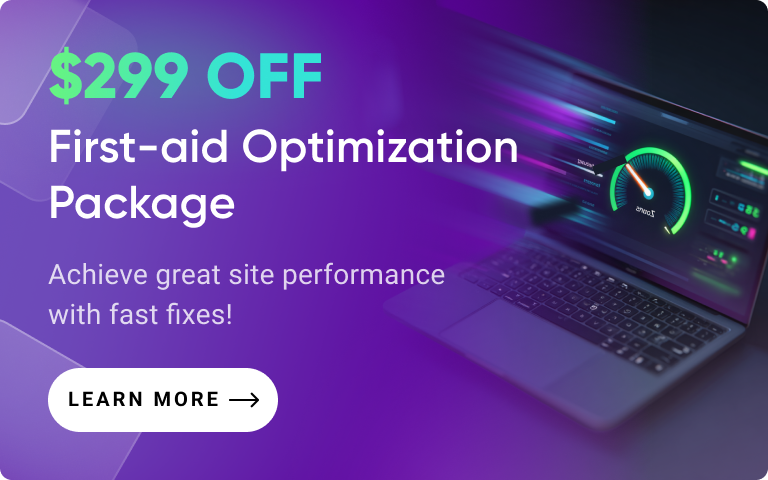Magento or Adobe Commerce vs Shopify is a frequent topic of debate among e-commerce business owners. Both platforms offer unique advantages and cater to different needs, making the choice dependent on specific business requirements and resources. Read our detailed Magento Shopify comparison to find the best platform for your store.
Magento Shopify Comparison Table
Feature | Magento | Shopify |
|---|---|---|
Ease of Use | Requires technical knowledge | User-friendly with an intuitive interface; designed for non-tech users |
Customization | Highly customizable with access to source code; extensive flexibility | Limited customization; relies on apps and themes, but easier to implement |
Themes and Templates | Offers a wide range of free and paid themes; more complex to customize | Wide variety of professionally designed themes; easier to customize themes |
Extensions and Apps | Extensive marketplace with thousands of Magento extensions and plugins | Large app marketplace with a focus on ease of installation and integration |
Hosting | Self-hosted or cloud-based with Magento Commerce; requires separate hosting | Fully hosted solution; includes hosting in subscription |
Pricing | The open-source version is free; the Enterprise version is costly (starts at ± $30,000) | 4 plans available: from $32 to $2,300 monthly |
Performance | Performance depends on hosting and configuration; can be optimized with technical expertise | Generally good performance with built-in optimization; easy to manage |
Security | Robust security features; require management and update | Built-in security features; managed by Shopify, less maintenance required |
SEO Features | Advanced SEO capabilities; extensive control over meta tags, URLs, etc. | Good SEO features; easier to manage but less granular control |
Analytics and Reporting | Advanced reporting with extensive customization options | Comprehensive built-in analytics; additional reports available via apps |
Customer Support | Community forums, extensive documentation, and paid support options | 24/7 support included; an extensive knowledge base and community forums |
Scalability | Highly scalable, suitable for large enterprises and complex needs | Scales well for small to medium businesses; enterprise solutions available |
Shopify vs Magento 2: Feature by Feature
Ease of Use
Magento requires technical knowledge for setup and management, and users need to be comfortable with web development and server management to leverage Magento's potential fully. This makes it ideal for developers or businesses with dedicated IT teams who can handle the complexity and technical requirements of the platform.
Shopify, on the other hand, is intuitive and easy to use, even if you don’t have a technical background. The platform features a drag-and-drop builder, which allows you to create an online store without a single line of code. Such user-centric design ensures that even those with minimal technical skills can effectively run their e-commerce business, making it a popular choice for small and medium-sized enterprises.
Winner: Shopify. Magento, while powerful, has a steep learning curve.
Customization
Magento stands out for its rich customization capabilities. With full access to the source code, businesses can tailor their stores to meet specific needs and preferences. Magento developers can build custom modules, integrate third-party applications, and make extensive changes to the store's functionality and appearance. This level of customization allows the creation of unique, feature-rich online stores that can cater to complex business requirements.
While Shopify offers a range of customization options, it doesn't match the depth of Magento. Customization in Shopify is primarily achieved through themes and apps available in its marketplace. Users can modify the appearance and functionality of their stores through the provided tools but for more advanced customizations, they may need to rely on third-party apps or hire developers familiar with Shopify's Liquid template language.
Winner: Magento’s flexibility is ideal for businesses that need bespoke solutions and have the resources to implement them.While Shopify’s approach makes it easier for users to enhance their stores without extensive technical knowledge, it also imposes some limitations.
Read More: Best Magento Development Agencies
Themes and Templates
Magento offers a range of themes and templates that can be highly customized, especially with the Hyvä theme, which enhances both performance and user experience. Hyvä is known for its modern, fast-loading front-end capabilities, making it a strong choice for businesses that require a high degree of customization and superior performance.
Shopify supports both custom-developed themes and professionally designed templates that are easy to customize. These themes are built with user-friendliness in mind, allowing store owners to make changes through a simple drag-and-drop editor. The platform offers both free and premium themes, catering to various aesthetic and functional requirements.
Winner: The choice between Magento (with Hyvä) and Shopify depends on your priorities. If you need advanced customization and performance optimization, Magento with the Hyvä theme stands out. For those who prioritize ease of use and quick setup, Shopify’s pre-designed themes offer a more streamlined solution.
Extensions and Apps
Magento boasts an extensive marketplace with over 5660 extensions and plugins. However, integrating and managing Magento plugins may require some technical expertise. Regular updates and maintenance are also necessary to keep the extensions functioning correctly and securely.
Although Shopify provides a range of built-in features that cover the essential needs of most online stores, it also has a large marketplace with more than 10309 apps. Shopify apps are designed to automatically integrate with Shopify's platform, minimizing the risk of compatibility issues.
Winner: Shopify’s user-friendly approach makes it easy for store owners to enhance their online stores with a wide variety of apps without needing extensive technical skills.
Hosting
Magento is a self-hosted platform, so you can choose any server and make the needed changes to improve website performance. This approach offers flexibility in choosing hosting solutions that best fit the business needs but also demands technical expertise to manage effectively.
At the same time, Shopify fully manages all hosting and server-related issues. The hosted nature of Shopify ensures consistent performance, security, and reliability, making it a hassle-free option for users who prefer not to deal with the intricacies of server management.
Winner: Magento if you want to be in control of hosting or Shopify if you don’t want to bother with it.
Read More: Best Magento Hosting Platforms
Pricing
The open-source version of Magento is free, but the enterprise edition can be expensive (estimated starting cost $30,000). Magento website costs can escalate with hosting and additional development needs.
Shopify has subscription-based pricing with 4 plans to suit different business sizes and needs, generally lower initial costs compared to Magento. If you pay monthly, the cheapest option costs $32, and the most expensive version starts at $2,300. Mind that Shopify also has transaction fees
Magento vs Shopify Pricing:
- Shopify Basic: $32
- Shopify: $92
- Advanced: $399
- Plus: $2,300
- Magento Open Source: $0
- Adobe Commerce: starts at $22,000
- Adobe Commerce on Cloud: starts at $40,000
Please note, that whether you choose Magento or Shopify, themes and apps are paid for separately, so the prices listed here are not final.
Winner: While Shopify’s initial costs are generally lower compared to Magento, it’s important to consider the transaction fees that Shopify charges on sales made through the platform unless you use Shopify Payments. These fees can add up, particularly for high-volume stores.
Scalability
Magento is highly scalable and suitable even for large enterprises with complex needs. Its robust architecture can handle large product catalogs, high traffic volumes, and complicated business processes. As a business grows, Magento can scale to meet increasing demands without compromising performance.
Shopify scales well for small to medium-sized businesses. Enterprise solutions are available but may not offer the same level of customization as Magento. Shopify Plus, the enterprise version of the platform, provides additional features and support for larger businesses, enabling them to handle higher volumes of transactions and more complex operations.
Winner: Magento. While Shopify scales well for many businesses, it may not offer the same level of flexibility and customization as Magento for large or highly specialized enterprises.
Performance
Depending on hosting and technical configuration, Magento’s performance can be very high. With easy performance-boosting best practices, it’s possible to achieve even smoother and faster Magento speed, significantly improving the user experience. However, the need for continuous monitoring and fine-tuning to maintain optimal performance can be demanding for store owners.
Shopify generally offers good performance with built-in optimization. The platform handles all server management and performance tuning, allowing store owners to focus on running their business rather than dealing with technical details. Shopify's infrastructure is designed to ensure fast loading times and reliable uptime.
Winner: Shopify offers out-of-the-box performance optimization and hassle-free management, providing consistently good performance without requiring technical expertise from the store owner.
Security
Magento provides robust security features but requires users to manage updates and patches, so security is in the hands of the user. Magento’s open-source nature means that users have control over their security measures but must actively manage them to maintain a safe environment.
Shopify includes built-in security features managed by Shopify, reducing the burden on users to maintain security. Shopify’s PCI compliance and SSL certificates provide additional layers of security, making it a secure option for online businesses.
Winner: Shopify’s managed approach ensures that security updates and patches are applied promptly, always keeping the store protected from vulnerabilities.
SEO Features
Magento’s advanced SEO capabilities include detailed control over meta tags, URLs, and other elements. Beneficial for in-depth SEO strategies. Magento’s flexibility enables the implementation of advanced SEO techniques but requires technical knowledge to fully utilize these features.
Shopify has good SEO features with basic tools for managing search engine optimization. While it offers essential tools for optimizing content and improving search engine rankings, it doesn’t provide the same level of granular control as Magento.
Winner: Magento. Shopify’s user-friendly approach simplifies SEO management but may not meet the needs of businesses with advanced SEO requirements.
Analytics and Reporting
Magento provides advanced and customizable reporting options for detailed business insights and analytics. Users can generate a wide range of reports, from sales and customer data to inventory and marketing effectiveness. The extensive customization capabilities allow businesses to tailor reports to their specific needs, but setting up and managing these reports can require technical expertise.
Shopify has comprehensive built-in analytics with additional reporting capabilities available through apps, offering a more straightforward approach. The platform offers a variety of pre-built reports covering essential metrics such as sales, customer behavior, and traffic sources. Additional reporting capabilities can be accessed through apps, providing more in-depth analysis without requiring extensive technical knowledge.
Winner: Shopify’s user-friendly reporting tools make it easy for businesses to gain insights and make data-driven decisions.
Customer Support
Magento offers a variety of support options, including extensive documentation, user guides, and a robust community of developers and users. For enterprise customers, Magento provides dedicated support services, which include technical assistance and consulting. However, for small to medium-sized businesses using the open-source version, direct support from Magento is limited, often requiring the help of agencies for troubleshooting and support.
Shopify provides comprehensive customer support, available 24/7 through multiple channels, including live chat, email, and phone. The platform also offers a rich knowledge base, video tutorials, and community forums to help users find solutions to common issues. This level of support is especially beneficial for those who may not have technical expertise and require reliable assistance to manage their online store effectively.
Winner: Shopify guarantees round-the-clock, multi-channel support and extensive resources to ensure that store owners can quickly and easily resolve any issues.
Read More: Magento vs. Shopify vs. WooCommerce
Shopify Pros and Cons
Pros:
All-in-one hosted solution
Doesn’t require any technical skills
App Store with over 10,000 apps
Extensive support and automated security
Cons:
- Fee for every transaction
- Limited customization
- Less scalable
- Basic SEO features
- No access to server settings
Pros
The primary advantage of Shopify is its user-friendliness. As an all-in-one hosted solution, it eliminates the need for technical skills, making it ideal for online businesses of all sizes. Shopify boasts a user-friendly interface, multiple themes for customizing storefronts, and an extensive App Store with over 10,000 apps to enhance your website. Additionally, the platform offers 24/7 support and automated security, ensuring a smooth and secure experience.
Cons
However, Shopify operates on a subscription model and charges fees for every transaction, which can add up over time. While the platform is easy to use, extensive customization may impact store performance, especially if numerous applications are installed.
Being a hosted solution, Shopify does not allow users to access and configure server settings, meaning any server-related issues must be resolved through the support team. Moreover, Shopify's SEO functionality and visual customization options are somewhat limited compared to other platforms.
Magento Pros and Cons
Pros:
- Free and open-source
- Advanced customization
- High scalability
- Robust SEO features
- Access to server settings
Cons:
- Steeper learning curve
- Security requires professional developers
- Needs separate hosting
- Higher initial costs
Pros
Magento offers significant advantages due to its open-source nature – it is free to use and allows for extensive customization and scalability. The platform is highly adaptable, making it an excellent choice for businesses with specific requirements. Magento also provides robust SEO features, giving businesses better opportunities to enhance their search engine rankings. Finally, users have full access to server settings, enabling fine-tuned control over website performance and configurations.
Cons
Magento comes with a steeper learning curve, requiring more technical knowledge and expertise compared to Shopify. Ensuring the security of a Magento store typically requires hiring professional developers, which can add to costs. Since Magento requires separate hosting, users must also manage and pay for their hosting services. Lastly, the initial setup and development costs for a Magento store are often higher, making it less accessible for small businesses or those with limited budgets.
Who Is Shopify Best For?
Shopify is best suited for small to medium-sized businesses that prioritize ease of use and quick setup. It is ideal for entrepreneurs who do not have extensive technical skills or do not want to hire a developer. Shopify’s all-in-one solution is perfect for those who want to focus on their products and marketing rather than dealing with technical issues.
Who Is Magento (Adobe Commerce) Best For?
Magento, or Adobe Commerce, is best for large businesses and enterprises that require highly customizable and scalable e-commerce software. It is ideal for companies with technical expertise or those willing to invest in professional development services to get a tailored solution. If you need a platform that can handle a high volume of products and traffic while offering extensive customization options, Magento is the right choice. However, additional comparison between Shopify Plus vs Magento Enterprise can be helpful for an objective decision.
Read More: Best Stores of Magento and on Shopify
Magento (Adobe Commerce) vs. Shopify: The Final Verdict
The meaning of differences between Magento and Shopify ultimately comes down to your business size, technical expertise, and specific requirements.
Shopify is perfect for small to medium-sized businesses looking for an easy-to-use platform with a wide range of apps. Magento, on the other hand, is ideal for large enterprises needing a highly customizable and scalable solution.
Examine your business standing, compare the key features, and determine which e-commerce platform – Magento or Shopify – will best help you achieve your business goals.
Frequently asked questions
The answer depends on your business needs. Shopify is better for small to medium-sized businesses that want an easy-to-use, hosted solution. Magento is better for large businesses that require extensive customization and scalability.
There is no universal answer to this question. Alternatives to Magento include Shopify, WooCommerce, and BigCommerce. Each platform has its benefits and is better suited for different types of businesses.
No, Magento and Shopify are separate platforms and do not work together. You would need to choose one based on your business needs and migrate if switching from one to the other.
Magento is a top e-commerce platform due to its advanced customization, scalability, and robust features, especially with the Hyvä theme. However, its complexity and higher costs make it better suited for larger businesses with technical resources. For ease of use, consider Shopify.

















